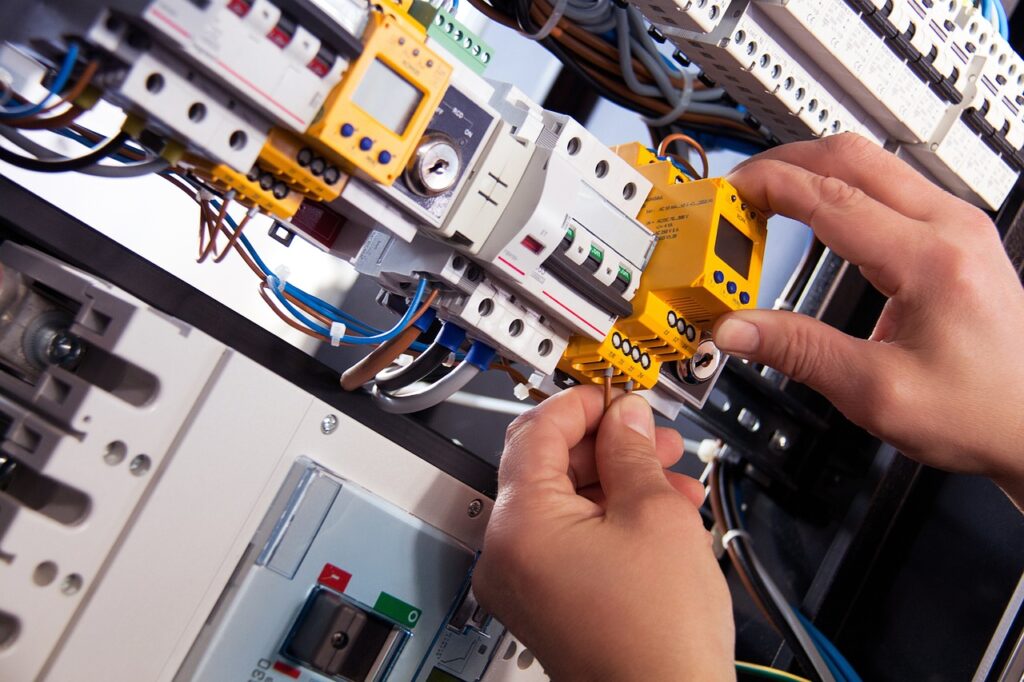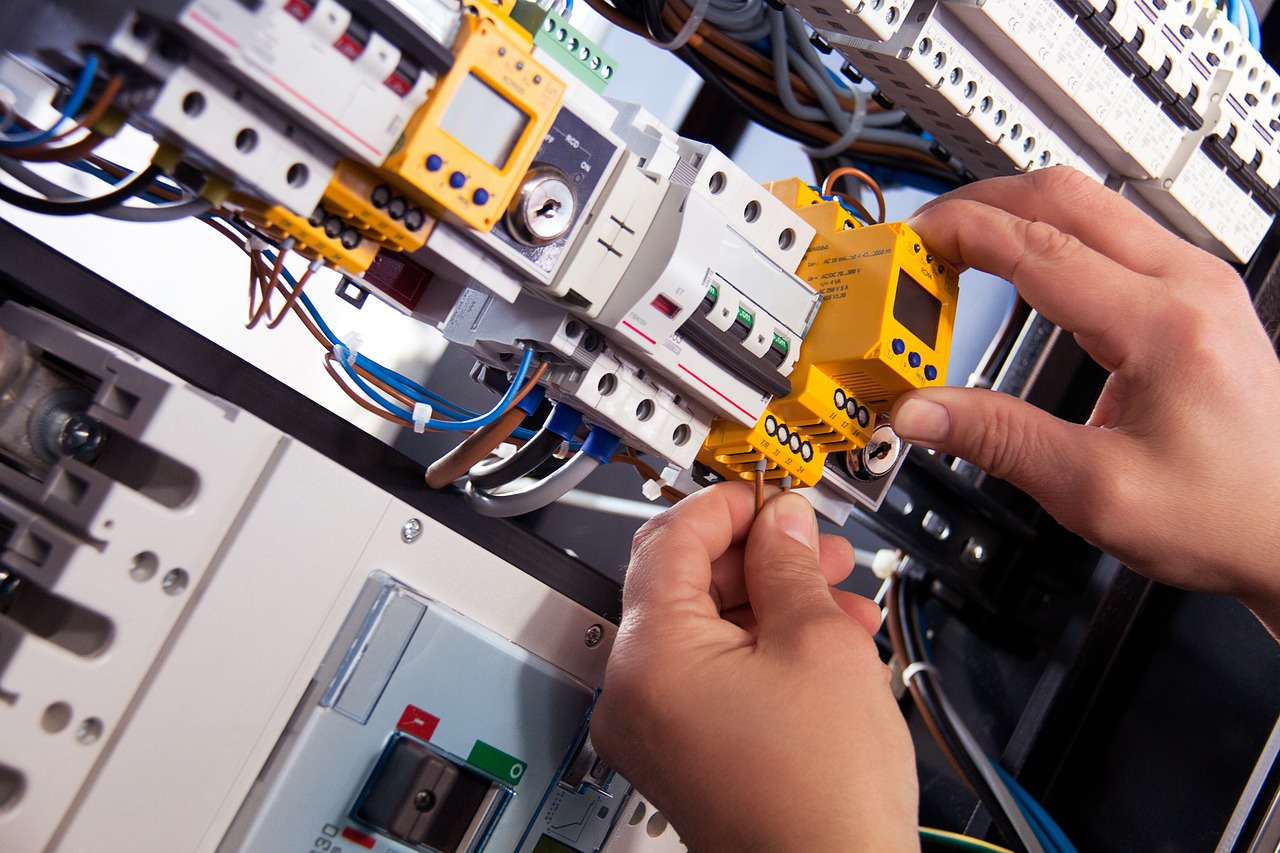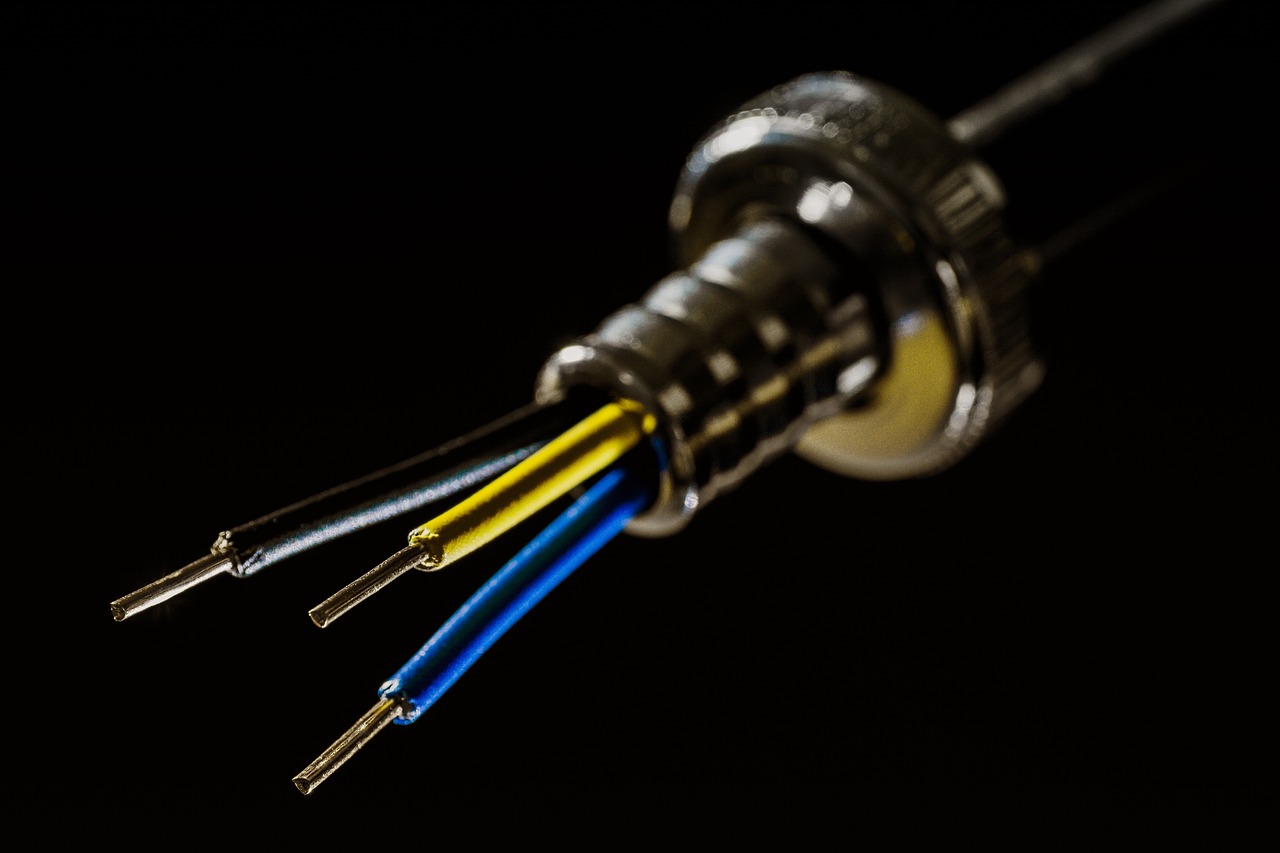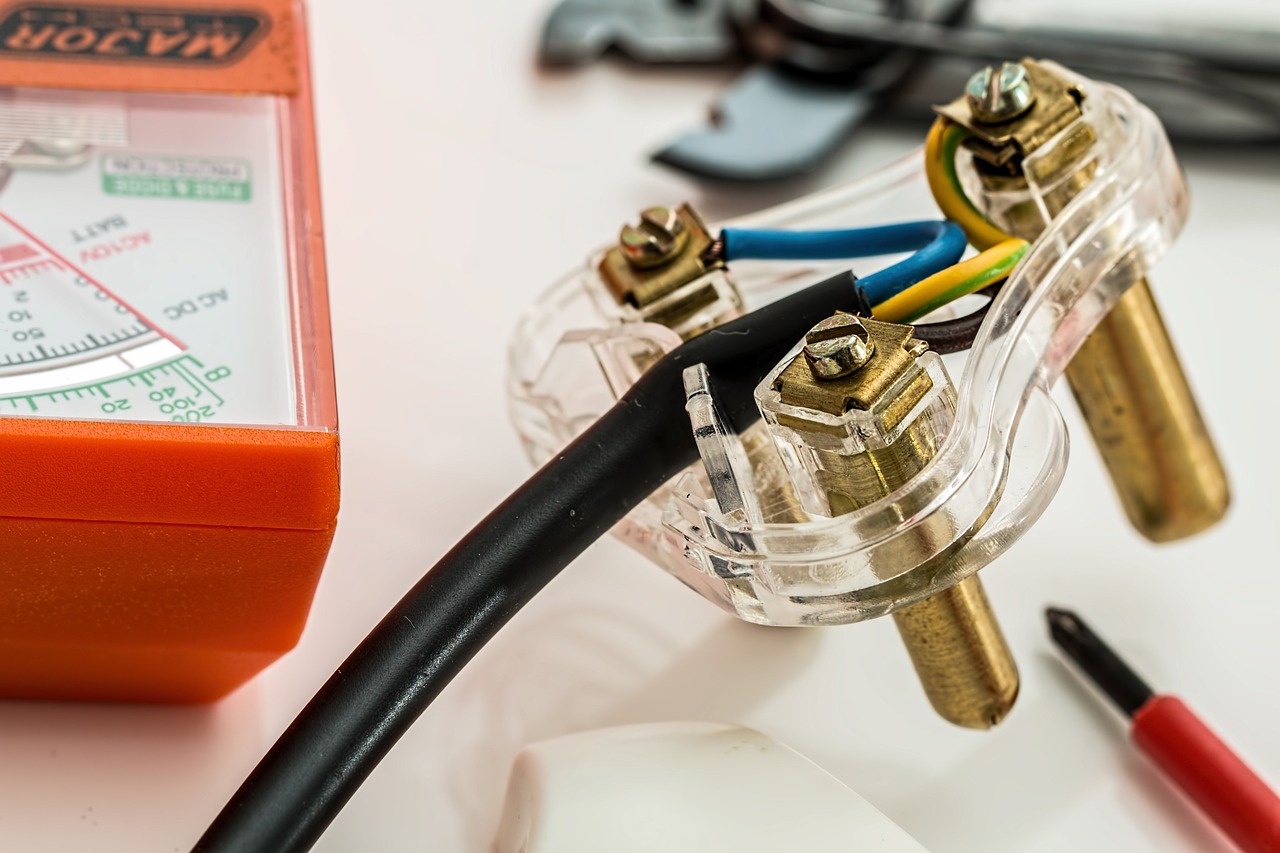Before embarking on a rewiring project, it’s crucial to conduct a proper inspection of your electrical system.
This essential step not only ensures your safety but also helps to identify outdated wiring and prevent overloaded circuits.
Neglecting to inspect your electrical system before rewiring can lead to costly repairs, damaged appliances, and even electrical fires.
By conducting a thorough inspection, you can identify any faulty electrical components and address them before they cause any harm.
It’s important to keep in mind that electrical systems can deteriorate over time due to wear and tear, so it’s crucial to have a professional inspect your system to ensure that it’s up to code and working efficiently.
Taking the time to inspect your electrical system before rewiring can save you time, money, and most importantly, protect you and your family from potential electrical hazards.
Ensuring Electrical Safety
You can’t afford to take chances with electrical safety, so make sure you inspect thoroughly before rewiring. It’s crucial to understand that electricity is a hazardous element that requires utmost care and attention.
Even a small mistake can lead to grave consequences such as electrocution, fire, or even death. Therefore, it’s vital to have a proper understanding of electrical regulations before attempting any rewiring process.
One of the ways to ensure electrical safety is by having the necessary training and certification. Electricians are trained professionals who have the expertise to handle electrical work safely. They’re knowledgeable about the latest regulations and codes and make sure that all electrical work is done in compliance with them.
If you’re not a licensed electrician, it’s important to consult one before rewiring to ensure that everything is done correctly. Remember, the safety of your home and loved ones is at stake, and it’s not worth risking it by attempting to do electrical work without proper training and understanding of regulations.
Identifying Outdated Wiring
Spotting old, frayed wires that resemble tangled spiderwebs can prevent potential electrical hazards. Identifying outdated wiring is crucial before rewiring your home or office because outdated wiring can cause electrical fires, electrocution, and other hazards.
Upgrading techniques have been developed to ensure that electrical systems are up to the latest safety standards. One of the most common signs of outdated wiring is flickering lights. This could indicate that the wiring is not able to handle the electrical load, or that the wiring is damaged.
Another sign to look out for is discolored outlets or switches. This could be a sign of overheating, which can cause a fire. By identifying these signs and upgrading your electrical system to the latest safety standards, you can ensure that your home or office is safe from potential electrical hazards.
Preventing Overloaded Circuits
If too many appliances are plugged into the same circuit, it can become overloaded and potentially cause a fire or electrical shock. That’s why proper circuitry is important when rewiring.
You need to make sure that each circuit is designed to handle the amount of electricity it will be carrying, and that the wiring is properly grounded. Safety precautions such as installing circuit breakers or fuses can also help prevent overloading and protect your home from electrical hazards.
In addition to ensuring the safety of your home and family, proper circuitry can also save you money in the long run. Overloaded circuits can cause electrical appliances to run less efficiently, leading to higher energy bills and potentially damaging the appliances themselves.
By taking the time to inspect and upgrade your wiring, you can avoid these issues and enjoy a safe, efficient home. So, make sure to prioritize proper circuitry and safety precautions when rewiring your home.
Addressing Faulty Electrical Components
Don’t ignore faulty electrical components, as they can pose serious risks to your safety and the well-being of your home. If you notice any issues with your electrical components, such as flickering lights or outlets that don’t work, it’s important to address them promptly. Ignoring these issues can lead to more serious problems down the road, including electrical fires and damage to your home’s wiring.
When it comes to addressing faulty electrical components, it’s important to consider whether repair or replacement is the best option. In some cases, a simple repair may be all that’s needed to fix the issue. However, in other cases, replacement may be necessary to ensure the safety and functionality of your electrical system.

Additionally, it’s important to be aware of common hazards associated with faulty electrical components, such as electrical shocks and fires. By taking the time to properly inspect and address any issues with your electrical system, you can help ensure the safety and well-being of your home and family.
Saving Money on Costly Repairs
Saving money on costly repairs can be achieved by regularly maintaining and servicing your electrical system. It may seem unnecessary at first, but it can actually save you a lot of money in the long run.
A properly maintained electrical system will have fewer issues and will be less likely to require major repairs or rewiring. To ensure that you’re taking the right steps towards maintaining your electrical system, it’s important to seek professional consultation. A licensed electrician can assess your system and provide cost-effective solutions to any issues that they find.
By following their recommendations and regularly scheduling maintenance, you can prevent small problems from turning into larger, more expensive ones. In the end, the investment of maintaining your electrical system will pay off with lower repair costs and a safer, more reliable system.
Frequently Asked Questions
How long does it typically take to rewire a house?
Rewiring a house can take anywhere from a few days to a few weeks depending on the size of the house, the complexity of the job, and any potential delays that may arise. Cost considerations are important, but it is also crucial to factor in the time needed for a proper inspection before beginning the rewiring process.
What qualifications should an electrician have for rewiring a house?
When hiring an electrician for rewiring, ensure they have proper qualifications and follow safety standards. Look for licensed and insured professionals to guarantee quality work and protect your home from potential hazards.
Can homeowners do their own rewiring or should they always hire a professional?
You may be tempted to save money by doing your own rewiring, but DIY risks are high. You could cause a fire or electrocute yourself. Always hire a professional for safety and cost comparison.
How often should a homeowner have their electrical system inspected to prevent rewiring?
To prevent the need for rewiring, it’s important for you to have a professional inspect your electrical system regularly. The frequency of inspections depends on the age and condition of your home, but it’s recommended to have them done every 3-5 years.
What are some common signs that a home may need rewiring?
You should be aware of common signs that your home needs rewiring, such as flickering lights, blown fuses, and burning smells. These are electrical hazards that require professional inspection to ensure your safety.
Conclusion
Congratulations! You’ve taken the necessary steps to ensure the electrical safety of your home by properly inspecting your wiring.
By identifying outdated wiring and preventing overloaded circuits, you’ve significantly reduced the risk of electrical fires and other hazards.
Moreover, by addressing faulty electrical components and saving money on costly repairs, you’ve not only improved the safety of your home, but also saved yourself from potential financial burdens.
Remember, proper inspection before rewiring is crucial for maintaining the integrity of your electrical system.
Keep up the good work and continue to prioritize the safety of your home and loved ones.



